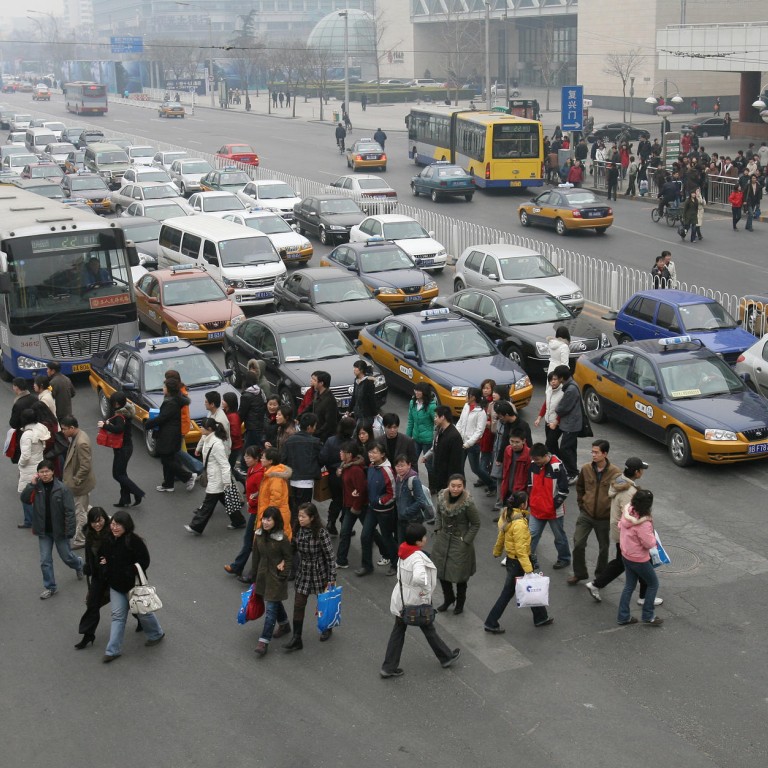
Crackdown on jaywalkers in Zhejiang province of China
Tempers flare over crackdown on errant pedestrians, with some detained after refusing to pay fines and assaulting officers
Speeding sports car drivers in Hangzhou , Zhejiang's provincial capital, used to be called "killers on the streets" for causing the deaths of so many pedestrians.
But jaywalkers have increasingly become public enemy No.1 for local policemen, with some even daring to bash police trying to apprehend them.
The province launched a campaign early this year to curb jaywalking after it found that it was one of the main causes of fatal traffic accidents.
The Hangzhou city government's website reported that traffic accidents claimed nearly 5,000 lives in Zhejiang last year, with 15 per cent blamed on pedestrians.
Jaywalkers now face fines of up to 20 yuan (HK$25) if caught using a zebra crossing when the light is red.
But many residents have turned a blind eye to the new rule, even though Zhejiang police repeatedly warned that the crackdown on jaywalkers would be as harsh as the one on drink-driving.
In the first 20 days last month, more than 8,000 jaywalkers were fined by Zhejiang police.
On the mainland, the authorities see fines as a means of education for those who fail to abide by rules. But the fines for jaywalking have not been popular, with some accusing the government of robbing people in order to increase its own revenue.
Local media reported that several jaywalkers were detained after refusing to pay the fines, flying into a rage and beating policemen.
Mainland internet users have coined the term "Chinese-style jaywalking" to refer to the throngs of people who regularly cross against red lights, making it difficult for police to catch and fine all of them. But the police have worked out a countermeasure - catching the first three jaywalkers in a throng, believing that deterring the vanguard will ensure they have no followers.
Mainland pedestrians have frequently complained about bad driving by motorists as the number of vehicles on roads soared in recent years.
The mainland, now the world's biggest market for cars, is grappling with worsening traffic conditions as millions of new cars appear on the streets with inexperienced drivers behind the wheel.
And pedestrians think they should be given priority on the roads, even if they jaywalk.
Beijing stepped up efforts to punish and educate car drivers in past years, issuing new traffic regulations and toughening penalties for those infringing the rules.
At the beginning of this year, a new traffic regulation which would have seen drivers penalised for running yellow lights sparked an uproar among motorists.
The police later backed down on that rule but it remains to be seen whether Zhejiang will waive the rule on jaywalkers.
Shanghai's city government launched a high-profile "Seven No's" campaign in the 1990s, calling on residents to be more civilised and loveable by refraining from spitting, jaywalking, harming the environment, damaging public property, littering, smoking in public or swearing.
However, the campaign does not appear to have had much of an impact in the mainland's commercial capital, illustrating just how hard it can be to stamp out the "Chinese-style" misbehaviour.

